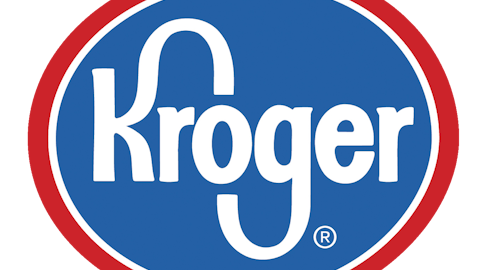What comes next?
A recovery won’t be happening any time soon. Despite its long history, It seems that Sears has few competitive advantages left, which is critical in a market full of competitors and extremely price-sensitive consumers. That being said, Sears still owns more than 750 properties, 10 distribution centers and has headquarters in Illinois, Michigan and Canada. These assets can be leveraged in many ways, including lease-backs, bringing safety to the balance sheet. Bishop Research and Analytics used five models to value Sears Holdings Corp (NASDAQ:SHLD)‘ real estate. When averaged, these models give an estimate value of $31.186 billion. If this number (which is more than 6 times the company’s current market capitalization) is accurate, then it’s hard to think of bankruptcy in the short run. However, considering that Lampert has an ownership stake that is already greater than 20%, I wouldn’t be surprised to see a private Sears in the future.
Competitors
Sears’ main competitor in electronics and home goods is Wal-Mart, which remains the market leader in food and general merchandise and is well known for its aggressive pricing strategy. Needles to say, Wal-Mart has its own problems: sales have been growing at 2%, an amazing rate for a company with a $256.47 billion market capitalization. The downside is that to keep the growth rate, Wal-Mart is investing its gross margin to make prices even lower. This is not sustainable in the long run. It’s also worth noting that in the past 12 months, the company’s stock has underperformed if compared with major indexes. The 5% annual return shows that even a giant like Wal-Mart is exposed to the increasing popularity of e-commerce, which isn’t one of Wal-Mart’s core competitive advantages.
In hardware and appliances, The Home Depot, Inc. (NYSE:HD) is one of Sears’ main competitors. Unlike Wal-Mart, Home Depot’s annual stock performance has been impressive: the stock price has more than doubled! This is not surprising if you take into account the positive effect of the housing recovery since Home Depot is a popular retail outlet for home and construction products and services. If you have a bullish view on the long term U.S. housing market prospects, Home-Depot may be attractive as an investment.
Summary
Although Sears Holdings Corp (NASDAQ:SHLD) is not showing signals of early recovery, it’s real estate has enough value to prevent bankruptcy. A private Sears is a more feasible outcome. Because Sears has the lowest capex figures in the industry and has had to make cost reductions and close stores, however, it could end up losing even more market share against The Home Depot, Inc. (NYSE:HD) and Wal-Mart.
The article This Huge Department Store Chain Is About to Say Goodbye originally appeared on Fool.com and is written by Adrian Campos.
Adrian Campos has no position in any stocks mentioned. The Motley Fool recommends Home Depot. Adrian is a member of The Motley Fool Blog Network — entries represent the personal opinion of the blogger and are not formally edited.
Copyright © 1995 – 2013 The Motley Fool, LLC. All rights reserved. The Motley Fool has a disclosure policy.





